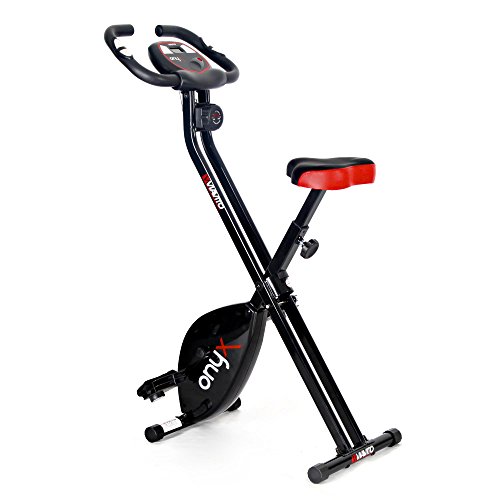Could Buy Exercise Bike Be The Key For 2024's Challenges?
페이지 정보
작성자 Bettie 작성일 25-08-07 07:22 조회 8 댓글 0본문
Understanding Exercise Cycles: Your Guide to Effective Workouts
Intro
Exercise cycles, frequently described as exercise cycles or training cycles, encompass different structured strategies designed to optimize fitness and performance. These cycles are essential for professional athletes and fitness enthusiasts aiming to balance their training regimens efficiently, ensuring they target different fitness parts while boosting overall efficiency. This short article will explore the different kinds of exercise cycles, the parts that specify them, their advantages, and how to develop a plan that aligns with specific fitness objectives.
What are Exercise Cycles?
Exercise cycles normally consist of distinct stages concentrated on specific fitness objectives, including strength building, endurance, speed, or recovery. These phases, when well-structured, permit people to achieve peak performance while minimizing the danger of injury and overtraining.
Secret Components of Exercise Cycles
Periodization: This describes the systematic planning of athletic or physical training. It includes dividing a training year into particular blocks or stages to maximize performance gains while handling tiredness and recovery.
Stages of Training:
- Preparation Phase: Focuses on constructing a structure of strength and endurance.
- Structure Phase: Targets more specific strengths and endurance adjustments.
- Peak Phase: Optimizes performance and is usually approached near to competitors time.
- Recovery Phase: Allows the body to recuperate, preventing burnout and injuries.
Microcycles: Each training cycle is typically broken down into smaller cycles (microcycles), typically lasting a week. These microcycles will differ in strength, volume, and specific focus.
Kinds Of Exercise Cycles
Here's a breakdown of some commonly acknowledged exercise cycles:

1. Linear Periodization
This traditional model slowly increases intensity while decreasing volume over a training duration. It is typically utilized by professional athletes getting ready for competitions and includes distinct phases, each targeting different physical attributes.
Advantages:
- Predictable results.
- Strong structure for novices.
Disadvantages:
- May lack flexibility to adapt to unanticipated modifications in goals or physical conditions.
2. Undulating Periodization
This design is more versatile compared to direct periodization, alternating in between various training strengths and volumes on a weekly or perhaps daily basis.
Benefits:
- Greater variety in workouts.
- Lowered risk of plateauing.
Drawbacks:
- Requires mindful planning to prevent overwork.
3. Block Periodization
Typical in elite training protocols, block periodization divides training into distinct blocks focused on specific goals, rotating between strength, hypertrophy, and endurance.
Advantages:
- Highly specific and targeted training.
- Enables maximum performance within short durations.
Drawbacks:
- Requires considerable experience and understanding of personal limitations.
4. Conjugate Method
This method incorporates several training objectives at the same time, such as strength, speed, and hypertrophy, within a single cycle.
Benefits:
- Efficient for athletes with numerous training demands.
- Can reduce uniformity in exercises.
Downsides:
- Complicated to prepare successfully.
- Danger of insufficient focus on particular areas.
Benefits of Exercise Cycles
Including Bikes Exercise For Sale (Geisler-Bro-2.Mdwrite.Net) cycles into a training program has a number of benefits:
- Improved Adaptation: Structured cycles allow the body to adjust and prevent stagnancy by routinely providing new obstacles.
- Injury Prevention: By consisting of healing and varied strength, exercise cycles decrease the danger of overuse injuries.
- Improved Performance: Cycles promote peak performance by allowing for strategic training loads and healing periods.
- Focused Goals: Each stage can target particular results, enabling much better tracking of progress and inspiration.
How to Create an Effective Exercise Cycle
Creating a reliable exercise cycle boils down to understanding specific objectives, fitness level, and way of life. Below are actions to establish your cycle:
- Define Clear Goals: Whether going for weight loss, muscle gain, or improved endurance, clearness on objectives is key.
- Assess Current Fitness Level: Take stock of your existing fitness status to develop a sensible plan.
- Choose the Right Type of Cycle: Based on objectives and competence, choose on an appropriate kind of exercise cycle.
- Plan Phases: Outline the preparation, building, peak, and healing phases, with unique focus and structure for each.
- Integrate Variation: Regularly change exercises, strengths, and training techniques to avoid dullness and boost adjustment.
- Display Progress: Keep track of workouts and results, updating the plan as needed based upon effectiveness and feedback.
FAQs about Exercise Cycles
Q1: How typically should I alter my exercise cycle?It is recommended to revisit or change your cycle every 4-8 weeks, depending upon your development and reaction to the program. Q2: Can novices benefit from exercise cycles?Yes! Beginners can benefit from structured cycles by gradually increasing their abilities and concentrating on fundamental skills and strength. Q3: What need to I do during healing phases?During recovery phases, engage in lighter activities such as yoga, moderate
cardio, and stretching to promote recovery without intense effort. Q4: How do I understand what kind of exercise cycle to choose?It typically depends on your experience level, primary fitness objectives, and personal choices. Consulting with a fitness professional can help customize a cycle suitable for you. Comprehending and using exercise cycles can substantially boost workout efficiency and general fitness development. By recognizing the various types of cycles, their elements, and the methodologies used
in preparing exercises, individuals are better geared up to accomplish their fitness objectives while also concentrating on healing and injury prevention. Whether one is an experienced professional athlete or a beginner, exercise cycles provide a structured technique that is important for making the most of potential and keeping inspiration throughout the fitness journey.
- 이전글 올인구조대 [원탑보증.com/가입코드 111] 도깨비리뉴얼
- 다음글 Do Not Forget Window Specialist: 10 Reasons That You No Longer Need It
댓글목록 0
등록된 댓글이 없습니다.